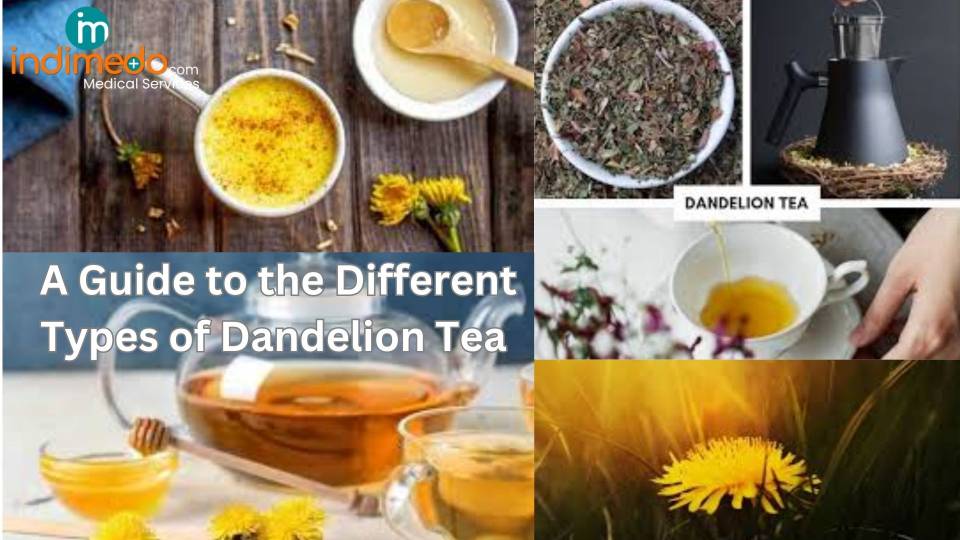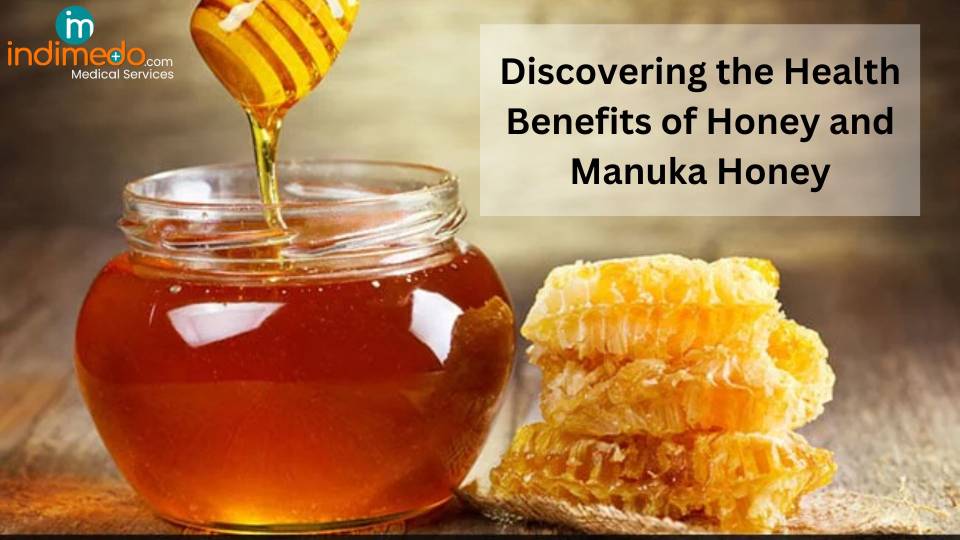Different Types of Dandelion Tea

Dandelion tea is a type of herbal tea made from the roots or leaves of the dandelion plant, which is a common weed found in many parts of the world. Dandelion tea is believed to have many health benefits and is used in traditional medicine for a variety of purposes.
Some of the potential health benefits of dandelion tea include aiding digestion, promoting liver health, reducing inflammation, and improving immune function. Dandelion tea is also thought to be a natural diuretic, which can help to flush toxins and excess fluid from the body.
To make dandelion tea, you can steep the dried leaves or roots in hot water for several minutes, or you can purchase pre-made tea bags from health food stores or online. Dandelion tea has a slightly bitter taste, so you may want to add a natural sweetener like honey or stevia to make it more palatable.
It's important to note that while dandelion tea is generally considered safe for most people, it may interact with certain medications or medical conditions. As with any new herbal supplement, it's a good idea to talk to your healthcare provider before adding dandelion tea to your diet.
Health Benefits of Dandelion Tea
Dandelion tea is made from the leaves and roots of the dandelion plant, and it has been used for medicinal purposes for centuries. Here are some of the potential health benefits of dandelion tea:
- Digestive Health: Dandelion tea is known to help improve digestion by stimulating the liver to produce bile, which aids in the digestion of fats. It also acts as a natural diuretic, helping to eliminate excess water and toxins from the body.
- Anti-Inflammatory: Dandelion tea has been shown to have anti-inflammatory properties that may help reduce inflammation throughout the body. This makes it a potential aid for conditions like arthritis and other inflammatory diseases.
- Rich in Antioxidants: Dandelion tea is rich in antioxidants, which help protect the body against damage from free radicals. This can help reduce the risk of chronic diseases like cancer and heart disease.
- Supports Liver Health: Dandelion tea is believed to help support liver health by improving the flow of bile and reducing liver inflammation. This may be particularly beneficial for people with liver disease or those who consume a lot of alcohol.
- May Improve Skin Health: Dandelion tea is also believed to have benefits for the skin, including reducing acne and improving skin hydration.
- Potential Cancer-Fighting Properties: Some studies have suggested that dandelion root extract may have anti-cancer properties, particularly against certain types of cancer cells.
While dandelion tea is generally considered safe, it is always a good idea to talk to your doctor before adding any new supplements to your diet, especially if you have a medical condition or take medications.
Dandelion Tea Benefits & Side Effects
Dandelion tea is a popular herbal tea made from the leaves and roots of the dandelion plant. It has been used for centuries for its potential health benefits. Here are some of the benefits and side effects of dandelion tea:
-
Benefits:
- Rich in nutrients: Dandelion tea is rich in vitamins and minerals such as vitamin C, vitamin A, iron, calcium, and potassium.
- May aid digestion: Dandelion tea has been traditionally used to promote digestion and relieve constipation.
- May help with inflammation: Dandelion tea contains anti-inflammatory compounds, which may help reduce inflammation in the body.
- May support liver health: Dandelion tea may help support liver health by promoting the production of bile, which aids in the digestion of fats.
- May help with weight loss: Some studies suggest that dandelion tea may help with weight loss by reducing water weight and improving digestion.
-
Side effects:
- Allergic reactions: Some people may have an allergic reaction to dandelion tea, which can cause skin rashes, itching, and difficulty breathing.
- Diuretic effects: Dandelion tea has diuretic effects, which means it can increase urination. This can lead to dehydration and electrolyte imbalances.
- Interactions with medications: Dandelion tea may interact with certain medications, including diuretics, antibiotics, and blood thinners.
- Unsafe during pregnancy: Dandelion tea is not recommended for pregnant women as it may stimulate uterine contractions and increase the risk of miscarriage.
- May cause gastrointestinal issues: Some people may experience gastrointestinal issues such as bloating, gas, and stomach discomfort after consuming dandelion tea.
As with any herbal remedy, it's always best to consult with your healthcare provider before using dandelion tea, especially if you are taking any medications or have any underlying medical conditions.
How to Make Dandelion Tea Caution
Dandelion tea can be made by steeping the leaves or roots of the dandelion plant in hot water. However, it's important to exercise caution when making and consuming dandelion tea, as it may have potential side effects and interactions with certain medications.
-
Here are some tips on how to make dandelion tea safely:
- Harvest fresh dandelion leaves or roots from a pesticide-free area. Rinse them thoroughly to remove any dirt or debris.
- If using the leaves, chop them into small pieces. If using the roots, chop them into small chunks.
- Bring a pot of water to a boil. Use about 1 tablespoon of chopped dandelion leaves or roots for every cup of water.
- Add the dandelion leaves or roots to the boiling water and let it steep for 5-10 minutes.
- Strain the tea and discard the solids.
- If desired, add honey, lemon, or other flavorings to taste.
-
Caution:
While dandelion tea is generally considered safe for most people, it may cause allergic reactions in some individuals. Additionally, dandelion tea may interact with certain medications, such as diuretics, blood thinners, and antibiotics. Therefore, it's important to consult with a healthcare provider before using dandelion tea as a remedy or supplement, especially if you have any preexisting medical conditions or take any medications.
What is chamomile Tea?
Chamomile tea is a type of herbal tea made from the dried flowers of the chamomile plant (Matricaria chamomilla). Chamomile is native to Europe and Asia, but it is now grown all over the world. The tea has a mild, floral taste and is often consumed for its calming and relaxing properties.
Chamomile tea is often used as a natural remedy for various ailments, including anxiety, insomnia, and digestive issues. It is also believed to have anti-inflammatory properties and may help boost the immune system.
To make chamomile tea, dried chamomile flowers are steeped in hot water for several minutes. The tea can be enjoyed on its own or sweetened with honey or other natural sweeteners. It is typically consumed before bed or during times of stress to help promote relaxation and sleep.
What are the Benefits of Chamomile Tea?
Chamomile tea is a popular herbal tea made from the flowers of the chamomile plant. It has been used for centuries for its potential health benefits, including:
- Promoting sleep: Chamomile tea is known for its calming properties and can help promote relaxation and better sleep quality.
- Reducing inflammation: Chamomile tea contains antioxidants that can help reduce inflammation in the body, which may help to lower the risk of chronic diseases such as heart disease, diabetes, and cancer.
- Relieving anxiety and depression: Some studies have suggested that chamomile tea may have anxiolytic effects, meaning it can help reduce symptoms of anxiety and depression.
- Improving digestion: Chamomile tea has been used as a traditional remedy for digestive problems such as bloating, indigestion, and nausea. It may also help to relieve stomach cramps and diarrhea.
- Boosting immune system: Chamomile tea contains compounds that have antimicrobial and anti-inflammatory properties, which may help to boost the immune system and protect against infections.
- Improving skin health: Chamomile tea may have anti-inflammatory and antioxidant properties that can help improve skin health and reduce the appearance of acne and other skin conditions.
Overall, chamomile tea is a natural and healthy beverage that can provide a range of potential health benefits. However, it is important to note that more research is needed to fully understand the extent of these benefits and how they may vary from person to person.
Conclusion
Dandelion tea is made from the roots or leaves of the dandelion plant, which has been traditionally used for medicinal purposes in many cultures. Some potential benefits of dandelion tea include improved digestion, reduced inflammation, and improved liver function. However, more research is needed to fully understand the potential health benefits and risks of dandelion tea.
It's important to note that dandelion tea may interact with certain medications, such as blood thinners or diuretics, so it's important to consult with a healthcare provider before consuming it regularly.
Overall, while dandelion tea may have some potential health benefits, it's important to approach it with caution and to consult with a healthcare provider to determine if it's safe for you to consume.





 Login with Facebook
Login with Facebook
 Login with Google
Login with Google